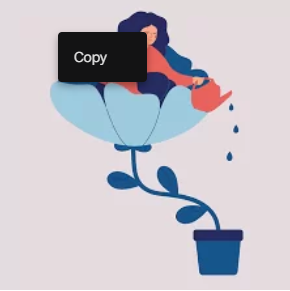In a society that thrives on hustle culture, comparison, and constant productivity, the idea of self- compassion might seem foreign. After all, how can you show yourself kindness when you’re always being told to push harder, be better, and strive for perfection? We live in a world that demands perfection at every turn. Social media shows us filtered glimpses of everyone else’s ideal lives, while work culture expects endless hours and productivity. If we’re not “on” all the time, we’re made to feel like we’re failing. We judge ourselves against impossible standards, believing that success and happiness depend on meeting these expectations.
This pressure is felt everywhere. We compare ourselves others and we feel like failures when we can’t balance everything in our lives perfectly. In this relentless cycle, self-compassion often gets pushed aside. We’re so focused on striving for external validation that we forget to nurture and support ourselves from the inside out.

The Power of Self-Compassion in a Stressful World
Self-compassion offers a radically different approach. It’s not about excusing our mistakes or lowering our standards. Instead, it’s about acknowledging our imperfections with kindness, understanding, and patience. It’s about offering ourselves the same empathy we’d extend to a friend in need, especially when we feel like we’ve failed.
Although it sounds straightforward, we can sometimes resist giving ourselves the same good treatment that we extend to others. There are several reasons why this practice is so essential in today’s world. Below are some of the benefits for you to consider:
It Reduces Anxiety and Stress We live in an anxiety-ridden world, where stress levels are through the roof. The constant demands of work, family, and personal expectations create a mental and emotional toll that can feel overwhelming. When we’re constantly criticizing ourselves for not measuring up, it only amplifies these feelings.
Self-compassion breaks this cycle. It allows you to acknowledge your struggles without judgment. By practicing self-compassion, you stop feeding into negative thoughts that increase stress and anxiety. Instead, you create a mental environment where you’re more likely to approach challenges with calmness, clarity, and resilience. In turn, this lowers your overall stress levels and improves your mental well-being.
It Fosters Emotional Resilience
Life is full of setbacks, disappointments, and moments of doubt. If you approach these challenges with harsh self-criticism, it can make it even harder to bounce back. However, when you show yourself compassion, you’re better able to accept and move through difficult emotions.
Self-compassion doesn’t mean ignoring your struggles; it means treating yourself with patience and understanding when you’re going through tough times. It encourages you to treat your emotional experiences with the same empathy and care you would offer someone you love. This approach helps build emotional resilience, allowing you to recover from difficult moments faster and with greater insight.
It Builds Better Relationships with Others
When you practice self-compassion, it not only improves your relationship with yourself—it also positively impacts your relationships with others. People who are compassionate toward themselves are often more empathetic and compassionate toward others. This is because you can’t give what you don’t have.
In a world where people often feel isolated, misunderstood, or judged, offering compassion—both to ourselves and to others—creates deeper connections. Instead of reacting from a place of insecurity or defensiveness, we can approach relationships with more understanding, openness, and kindness. Self-compassion fosters a more inclusive, supportive environment in our personal and professional lives.

How You Can Start Practicing Self-Compassion Today If you’re new to the idea of self-compassion, it can be hard to shift from years of harsh self- criticism. But even small steps can have a profound impact:
- Pause and breathe when you feel overwhelmed. Give yourself permission to take a break.
- Talk to yourself like you would a close friend. If a friend was struggling, you’d offer them compassion—do the same for yourself.
- Practice mindfulness to become aware of the moments when self-criticism arises, and gently shift to a more compassionate response.
- Give yourself permission to fail. Mistakes are not the end of the world—they are opportunities to learn and grow.
Self-compassion isn’t about being soft on yourself; it’s about being human. It’s about treating yourself with the care and respect you deserve, no matter where you are on your journey.
Join Us for a Journey of Self-Discovery
Here at the Tampa Bay Center of Relational Psychology, we believe in the transformative power of self-compassion—and we’re excited to help you integrate it into your life. Starting in January 2025, we’ll be embarking on a four-part book series focused on self-help and personal growth, led by me, Dr. Sarah Boutros.
Our first topic in the series will be self-compassion. This group provides an incredible opportunity for you to learn how to bring more kindness, patience, and resilience into your life, with the guidance of a supportive group. We’ll be discussing practical strategies, exercises, and insights to help you apply the principles of self-compassion in your everyday experience.
If you’re ready to take this step toward greater emotional well-being and resilience, we’d love for you to join us. For more information, or to sign up for this transformative journey, please contact us at 813-575-4547. Together, we’ll explore the tools, and mindset shifts that can help you live with more peace, understanding, and self-compassion.





